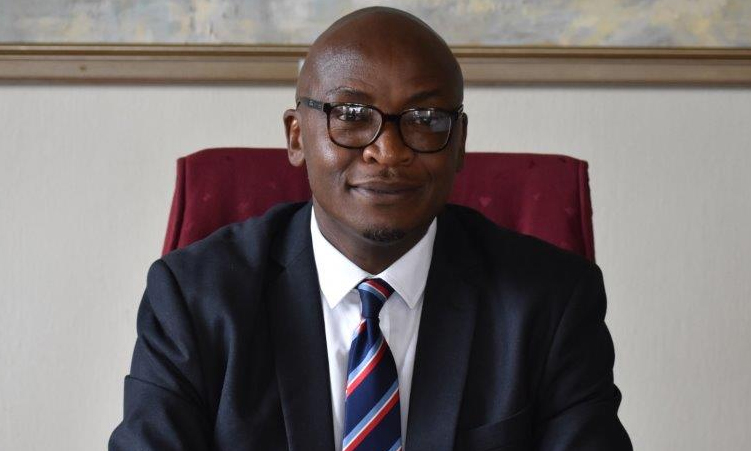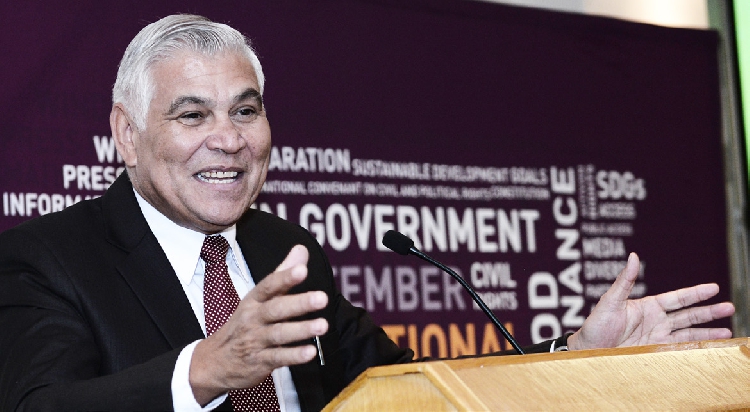Swakopmund municipality chief executive officer (CEO) Alfeus Benjamin has raised alarm about the impending increase in the cost of electricity, claiming it would place a huge burden on residents and may deter investors.
The Electricity Control Board (ECB) has approved a 7,3% increase in bulk electricity tariffs, or N$1,82 per kilowatt-hour, up from the existing N$1,70 per kilowatt-hour.
The increase will take effect on 1 July and will apply to NamPower customers.
Benjamin said the high tariffs would directly affect ordinary consumers.
“Electricity plays a crucial role in the development of towns, influencing the willingness of investors to invest in specific areas. Moreover, Namibia, as part of the Southern African Development Community, already experiences the highest electricity costs.
“Therefore, it is evident that continued tariff increases would not only discourage investment, but also impose a heavier financial burden on household incomes,” he said.
Benjamin said it is of grave concern that Namibia continues to import about 71% of its bulk power from neighbouring countries, primarily South Africa, Zimbabwe, and Zambia.
“This indicates that, as a nation, we have not succeeded in establishing a substantial internal capacity for generating electricity over the course of 33 years.
“Consequently, the cost of electricity is determined by market forces and external suppliers, despite our participation in the Southern Africa Power Pool.
“Electricity plays a crucial role in the development of towns, influencing the willingness of investors to invest in specific areas,” he said.
Meanwhile, the Swakopmund municipality continues to prioritise land provision for residential, commercial and agricultural use.
Residents of the Wagdaar community received ownership certificates for approximately 270 erven last week from the municipality.
This was followed by a similar exercise last month, when the municipality handed over 800 erven to the residents of DRC informal settlement.
Benjamin said this is being accomplished through the implementation of the 2020 to 2040 structure plan, which was approved by the Ministry of Urban and Rural Development last year.
In addition, he said the municipality has built an internal capacity for land planning.
LAND PLANNING
“Most of the planning of land (townships) and the design and monitoring of municipal services to these townships are done utilising in-house expertise from the engineering and planning services department of the municipality,” he said.
He said one of the approaches is to complete the planning of townships in advance and only focus on the construction of the following year, or as the council directs.
Benjamin, who took over the reins at the Swakopmund municipality in 2018, said the municipal council made a deliberate decision to grant land to those who had been applying for years.
“We believe to restore people’s dignity, people should own assets such as land and property to gain access to services such as bank loans. Furthermore, property ownership can provide individuals with financial stability and opportunities.
“Owning land or property can serve as collateral for loans, allowing individuals to invest in their businesses, pursue entrepreneurial endeavours, or access financial services to improve their economic standing.
“It can also enable individuals to build generational wealth, passing down assets to future generations and fostering long-term economic security,” he said.
In addition, the coastal town is establishing itself as a centre of higher learning in Namibia.
The International University of Management is constructing a N$25-million research, training, and conference centre at Swakopmund.
Welwitchia Health Training Centre is building a N$1,6 billion Swakopmund School of Engineering, Logistics, Marine, and Health Science, which is set to open in 2028.
“The establishment of institutional centres at Swakopmund not only provides study opportunities and expert knowledge, but also has a significant impact on the town’s economic growth,” Benjamin said.
Swakopmund constituency councillor Luoisa Kativa this week commended Benjamin and the municipal council for providing essential services, including land.
“I’m delighted to know our people are in possession of these certificates, which enable them to get a piece of land,” she said.
The former Swakopmund mayor said she is working effectively with the municipality to improve “our community as a whole”.
She also expressed concern over the impending increase in electricity rates.
“People should bear in mind electricity isn’t the only expense required for living. There are a whole lot more, and increasing these rates won’t lift our people, but break the little they have,” she said.
Stay informed with The Namibian – your source for credible journalism. Get in-depth reporting and opinions for
only N$85 a month. Invest in journalism, invest in democracy –
Subscribe Now!








